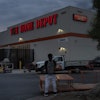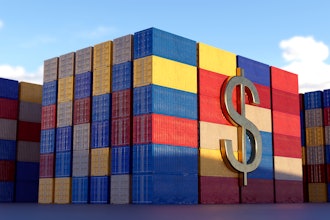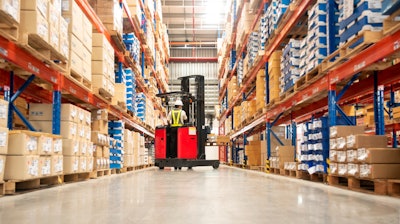
At this time of need, the world is finding new ways to come together. As businesses lean on the power of the supply chain, the focus has shifted to survival mode. Understandably, successful business leaders are sharply focused on the here and now. These leaders have activated business continuity plans and quickly adjusted to the new reality of changes in consumer behavior due to social distancing and employees working remotely and carrying on responsibilities online. There are many examples of companies that, only weeks into the global pandemic brought by the COVID-19 virus, have redefined their business entirely, created new solutions and found opportunities where there were none before.
During one of the many webinars I attend on a weekly basis, Greg White and Scott Lutton, hosts of Supply Chain Now Radio, recently invited Mike Griswold of Gartner to be a guest on the show. Mike said that “all supply chains are being tested right now,” highlighting one of the most valuable attributes of mature supply chains: their flexibility. This includes rolling shutdowns, reduced hours of operation, shifts in manufacturing and other tactical short-term actions designed to preserve cash and optimize costs. This cost-centric, cash-preservation playbook will be enough for some businesses to survive, some may even thrive. Others will discover business opportunities without being opportunistic, as Mike also said.
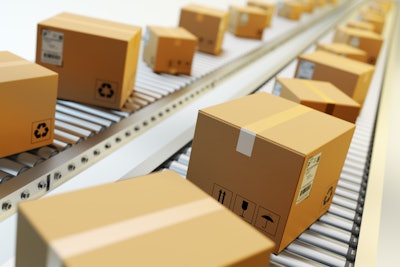 iStock
iStock
Reputation matters now more than ever. One only needs to observe what happens on social media when a global, captive audience of millions working remotely laser-focuses on a company, business leader or celebrity making the wrong move for being tone-deaf or otherwise. The flurry of criticism can be unforgiving. Unfortunately, some businesses have not learned these lessons and think that a marketing “brand refresh” or hiring a reputation manager will make the problem go away. Some of these image-makeover activities may prove effective under different conditions or when time is on our side.
However, this global pandemic has made everything acquire a hyper-speed dimension. To survive, businesses and the supply chains that sustain them demand even more flexibility, fast identification of source materials, augmented production and even faster speed to online sale while also maintaining a high level of performance in a complex chain of partners, which are still global. Carrying non-productive or excess inventory potentially clogging the supply chain may become a bigger problem for businesses as second- and third-tier partners begin to fail.
In his recent article in The Philadelphia Inquirer, Harold Brubaker describes an example of a company that, for financial reasons not related to COVID-19, could not survive. As the ultimate and final act of kindness, uBiome donated test kits swab inventory it no longer needed to the Children’s Hospital of Philadelphia. A global list of Fortune 500 companies recently identified brands that are using their services, infrastructure, products, equipment and expertise to fight the pandemic and help their employees and customers get through this crisis. AT&T, for example, is providing FirstNet devices to first responders, including free data service for doctors and nurses for the next three months. With the help of their community partners, companies including Cole-Parmer, Black Box, AFX Lighting are using the strength of their supply chains to make a difference at this time.
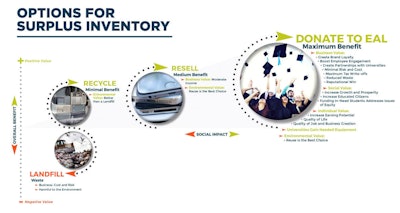 An EALgreen infographic detailing manufacturers' options with excess inventory.
An EALgreen infographic detailing manufacturers' options with excess inventory.
And when this global pandemic passes, these generous companies will benefit. As displaced employees start to look for more meaningful career paths, and we return to stores — and online — to buy the products we love, we will certainly see these companies with the well-deserved halo of a more favorable light.
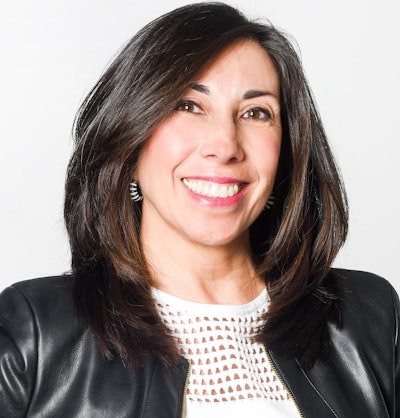 Green
Green



